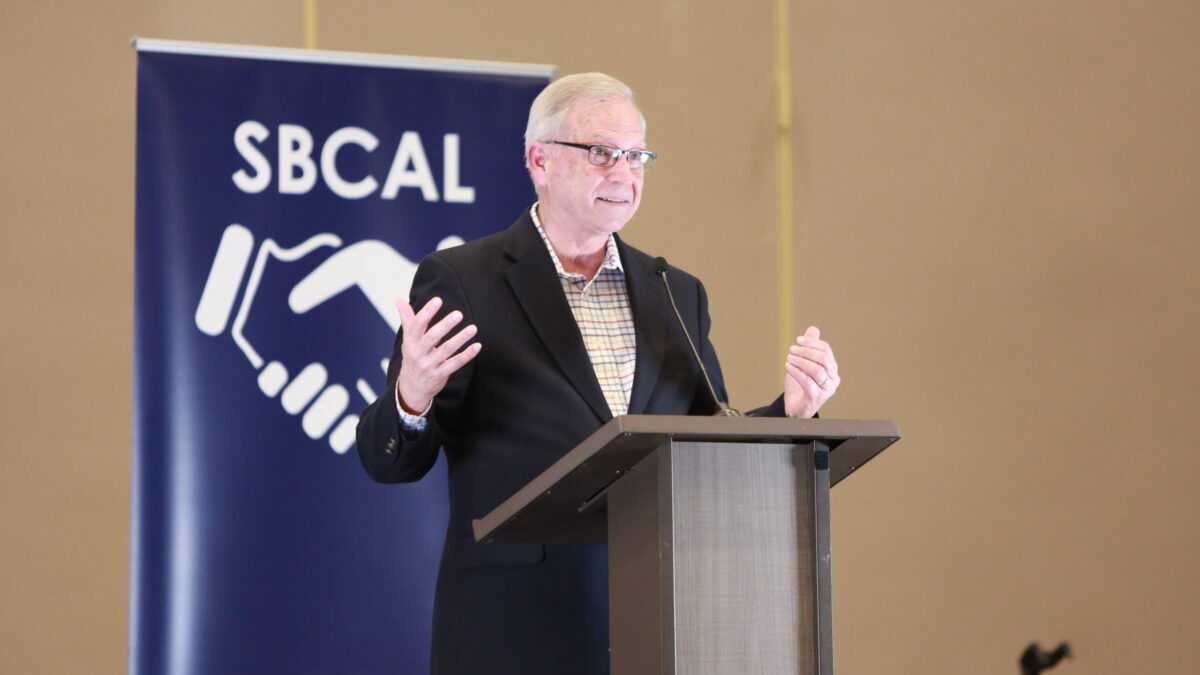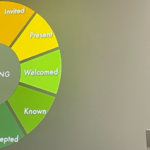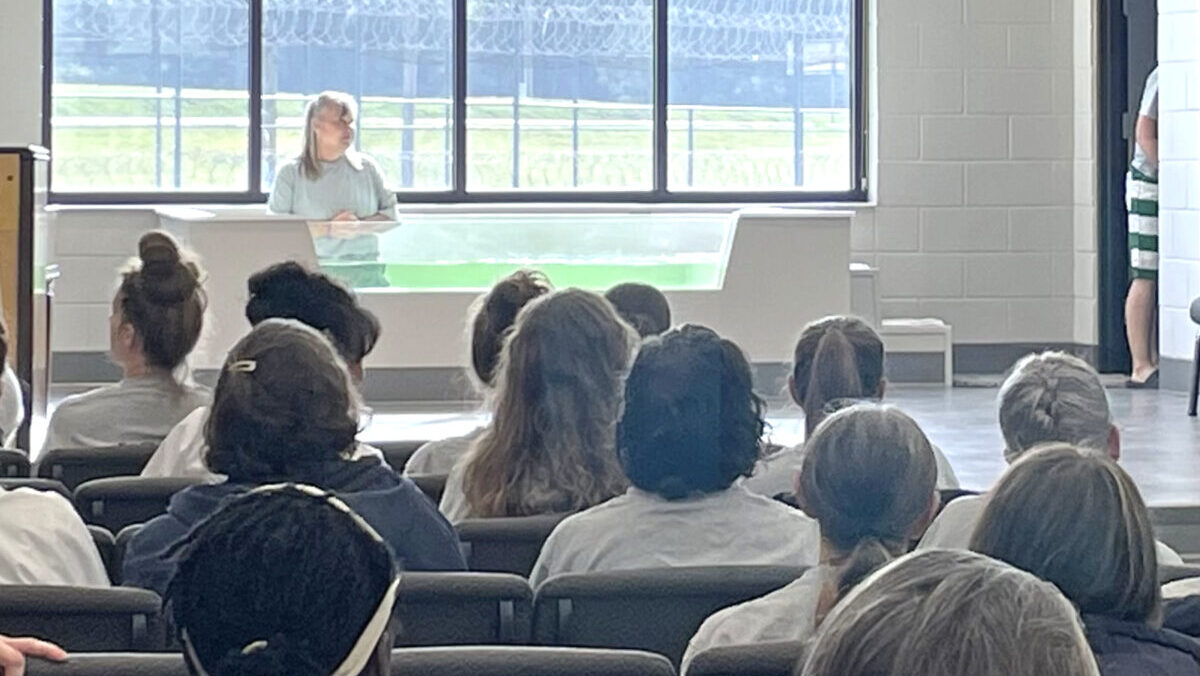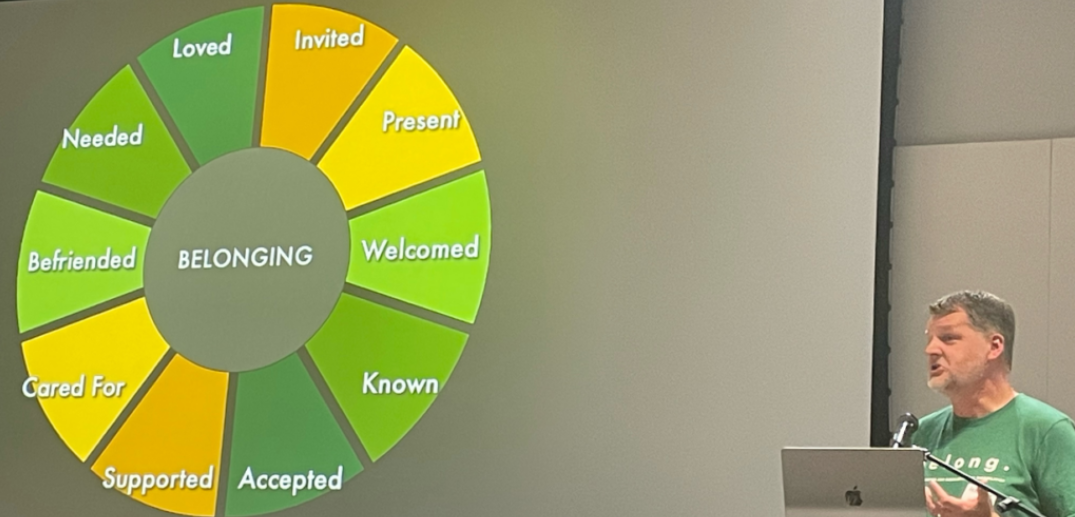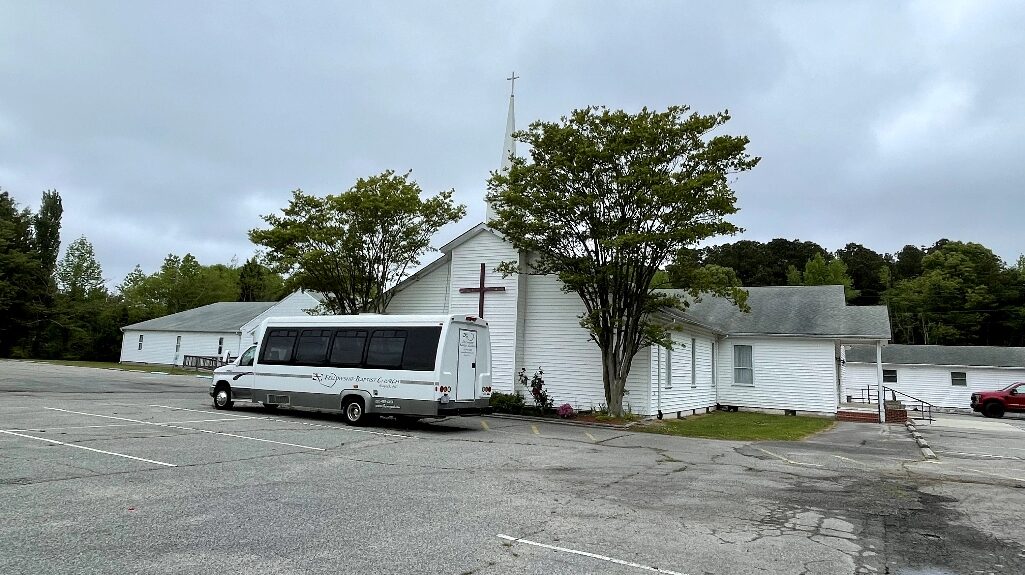Ray Gentry, part-time president of the Southern Baptist Conference of Associational Leaders since 2015, will move into a full-time role as president and CEO effective July 1.
His expanded leadership position, approved during last year’s SBCAL annual meeting in Anaheim, was affirmed this week in New Orleans with the unanimous approval of the group’s 2023–24 budget that includes the full-time staff position.
Gentry told The Alabama Baptist in an interview last fall that he is excited to be in the midst of what he considers “the renaissance of associationalism” in Southern Baptist life.
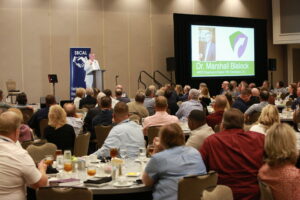
Gentry, previously the longtime associational mission strategist for Southside Baptist Network in Georgia, described local Baptist associations as “important to the overall work of God’s Kingdom” as they facilitate “churches coming together on mission in their setting to advance the gospel.”
“Our churches do better when they collaborate together as an association for missions, evangelism, leadership development, church planting and church revitalization,” he emphasized. “I’m excited about where we are and the direction we’re going.”
SBCAL officers elected
In addition to Gentry’s role, SBCAL officers unanimously elected for the coming year include chair Todd Robertson of Kentucky, vice chair David Bowman of Texas and recording secretary James Risner of Ohio.
Among featured speakers during the two-day conference were Jamie Dew, president of New Orleans Baptist Theological Seminary; Josh Ellis, executive director of Union Baptist Association in Houston; Hance Dilbeck, president of GuideStone Financial Resources; J.J. Washington, national director of personal evangelism for the North American Mission Board; and Danny Akin, president of Southeastern Baptist Theological Seminary.
Jamie Dew
Speaking from 1 Peter 3:13–17, Dew challenged associational leaders to remember that it is an honor to suffer for Christ and to love God supremely above everything else. He also urged them to remember to preach the gospel, to be kind and respectful and “to keep your hands clean.”
“When our hearts and hands are dirty, we are more likely to stay muted,” he cautioned. “Remember what it was like when you first became a Christian. … Go back to what you felt when you first came to Jesus.”
Josh Ellis
Ellis encouraged fellow associational leaders to build trust as a key aspect of effective leadership.
“The more people trust, the more they’ll risk,” he declared. “It is trust that transforms groups of people into a team.”
Urging leaders to also cast vision, encourage, serve and equip, Ellis said, “Leaders get the best from others not by building fires under people but by building fires within them.”
Hance Dilbeck
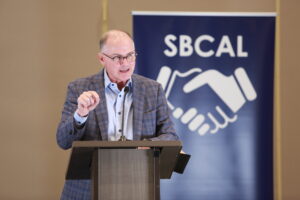
Regarding building relationships, Dilbeck urged associational leaders to help churches talk about how to pay their pastors.
Pulling from Philippians 4:10–20, he noted three points:
- Be careful.
“It’s been delicate since the Apostle Paul,” Dilbeck said jokingly.
- Be confident.
“Paul says, ‘I received your gift as support for my work, but even more I received it as expression of your concern.’ It’s not just about the money, it’s about deeper things. It shows a real fellowship and partnership.
“It is appropriate to advocate on behalf of the pastors and the pastors to advocate on behalf of themselves.”
- Make disciples.
“Paul used this generous support as an exercise in faith that will build up and bless those who have given it. … A church’s generous support of a minister of the gospel will be blessed by God.
“I’m not saying they have to pay a full-time pastor, but they all need to show value to the work of the pastor and minister of the gospel.
“Help partner with us in advocating for our pastors and our churches and helping pastors advocate for themselves … to experience financial stability that allows them to persevere in the world.
“The conversation has always been [delicate]. However, if we fail to raise the issue in a clear and biblical conversation, then we rob the pastor, we rob the people of God, of the biblical opportunity to grow as disciples,” Dilbeck explained. “We rob the congregation of the blessings of God’s abundant supply of their needs, and we rob God of His glory as the One who is able to supply all our needs.
“We believe that if we can enhance the financial security and resilience of the messenger of the gospel, we can help enhance the message of the gospel,” he noted. “We also believe we need you to help us with that.
“Together we can make a difference for the pastors in our churches.”
J.J. Washington
Preaching from 1 Corinthians 1:18–25, Washington outlined a sermon on the message of the Cross — how it’s viewed, how it’s used, why it’s refused and what it proves.
“Jews want signs, Greeks seek wisdom, but we preach Christ crucified,” Washington said. “The world through its own intellectual system came up empty when it tried to get to know God.
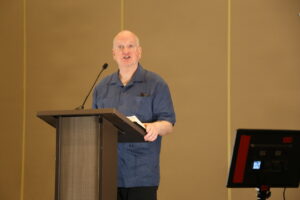
“God has called us to be a co-laborer with Him … to share the good news,” he noted. “The gospel is for everyone without distinction. The power is in the gospel. It is the power of God.”
The cross showcases how salvation is God’s work but sharing about it is the believer’s role, Washington explained.
Danny Akin
Akin noted that COVID-19, racism and politics are three pressing issues that have been especially hard on pastors in recent years.
Affirming that associational mission strategists “are the shepherd of shepherds in your association,” he encouraged them to “stay faithful no matter what is going on.”
Sharing from 1 Peter 5:1–4, he reminded participants of their calling to “pastor the flock of God” and “be an example to the flock.”
In his closing prayer on behalf of the associational leaders, Akin said, “We are never more like Jesus than when we are serving others.”
EDITOR’S NOTE — This story was written by Trennis Henderson and Debbie Campbell with additional reporting by Grace Thornton. The group also held a special gathering with leaders of the Abuse Reform Implementation Task Force following the Sunday evening session (read about it here).

